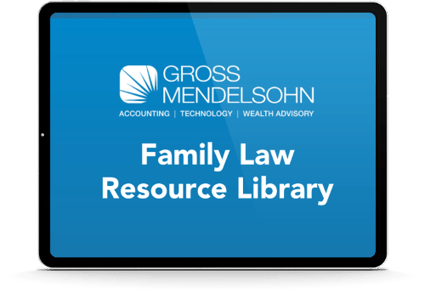Forensic Accounting Checklist For Family Law Attorneys — Divorce
Even in the most amicable of cases, divorce litigation involves complex procedures to value and divide assets. To help, the following checklist provides recommendations for navigating the discovery of hidden assets, avoiding income manipulation and ultimately maximizing divorce clients' equitable results.
Include your client in investigations
Your best source of information on a case is your client. When there is a closely held business involved, your client might have knowledge that could prove helpful. On many occasions, spouses will actually have worked in the business and may know a lot about it. Make sure to keep them looped in.
Advise your client on smart post-separation practices
Emphasize to your client that they should not try to hide or game assets, particularly if they own a business. Prior to the divorce, consider having your client open up a bank account that’s not part of the marital estate and contribute post-separation earnings.
Request and obtain all financial data
Suspicion is one thing, but proof is another. Be sure to collect all financial documents — tax returns, personal financial statements, credit reports, bank and investment account statements — and start early.
Separate the assets
Prior to the divorce, consider having your client separate marital assets from non-marital assets, which ultimately will make it easier for the judge to make a ruling. Counsel from a CPA can help in making this separation.
Ask the right questions
These basic questions can go a long way toward uncovering improper asset concealment or protection strategies in marital disputes.
You Might Also Be Interest In...
Family Law Resource Library

Need help on your next case?
Talk with us. We’ll have a confidential, no cost or obligation discussion about your client’s situation.
